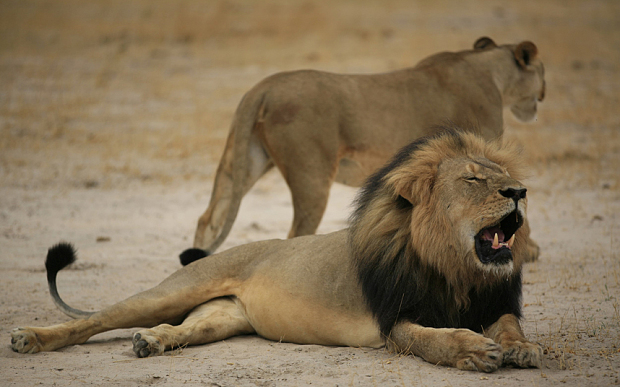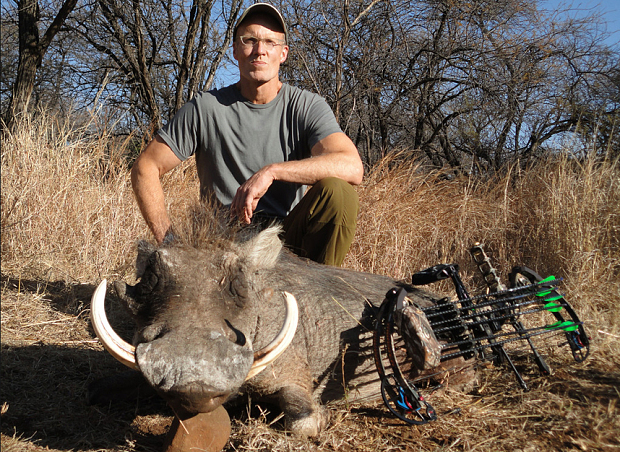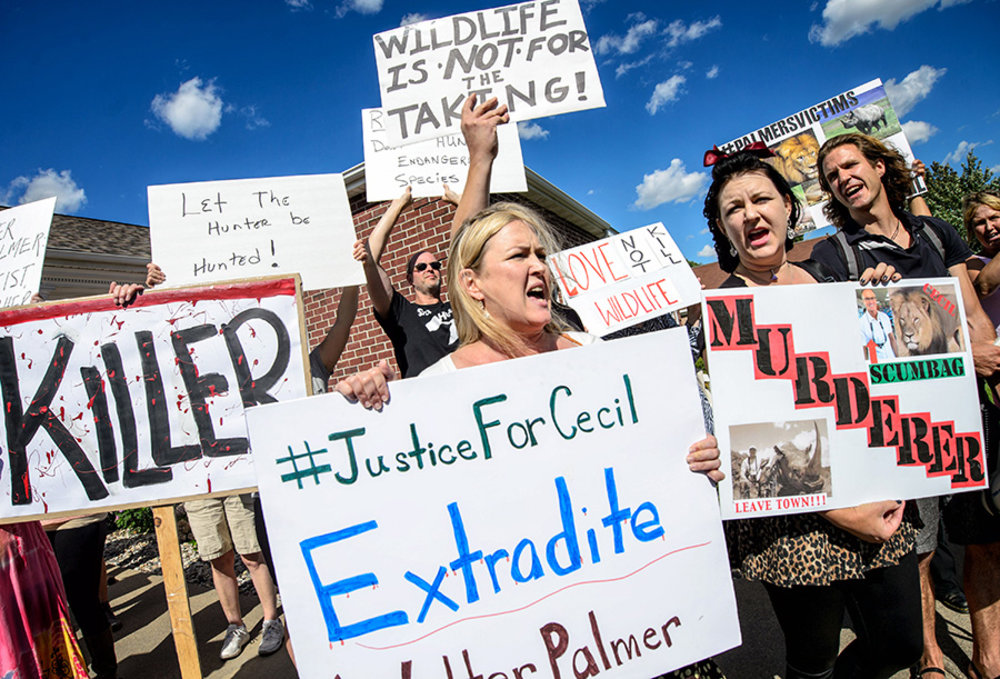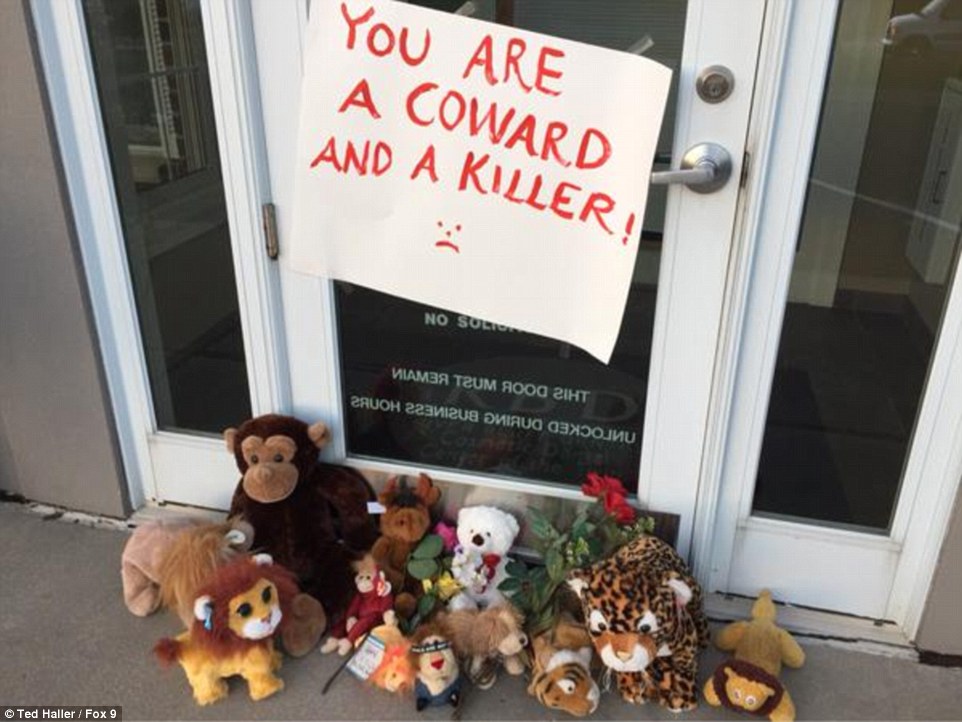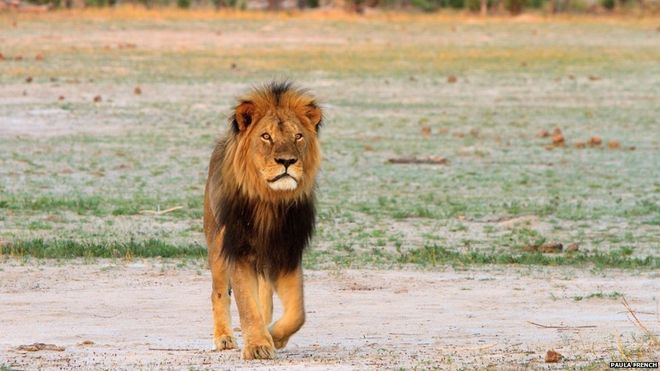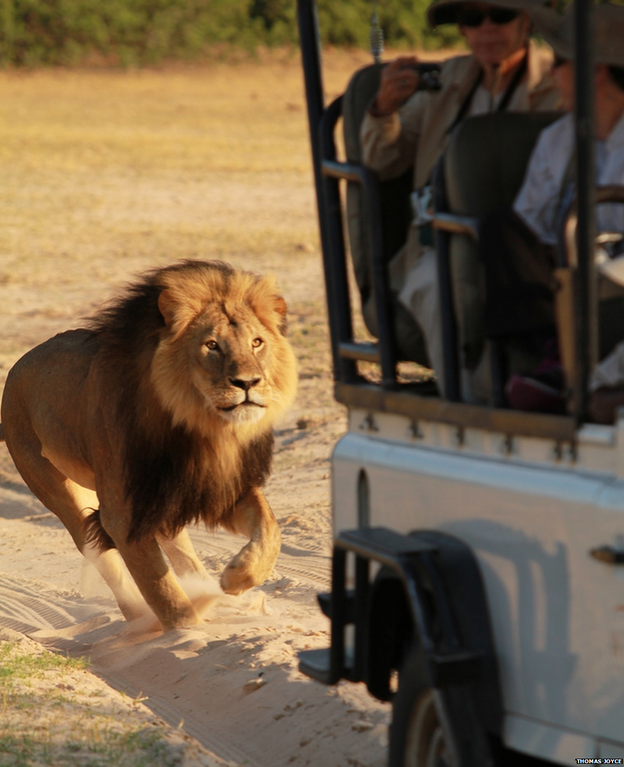Why Is There Global Outrage Over The Killing Of A Lion In Zimbabwe?
In order to understand why Cecil the lion's death has become such a big controversy, it's vitally important to look at the details of his killing, which are depressingly disturbing.
The lion pictured below is (or rather, was) named Cecil, one of South Africa's most famous lions, who was the star attraction at Zimbabwe's Hwange National Park. On 1 July 2015, the majestic beast was found skinned and headless on the outskirts of the park.
Cecil was a popular attraction among visitors to the Hwange National Park.
Image via The Telegraph/AFPWhile The Guardian had earlier reported that authorities were looking for a Spaniard in connection with Cecil's killing, The Telegraph on 28 July revealed that it was, in fact, an American dentist named Walter James Palmer who lured him out of the park and shot him with a crossbow. Palmer paid USD55,000 for the hunt.
After Cecil's killer was named, the story has taken over the Internet, with a major part of the online and offline world coming together in their collective outrage against the dentist and how Cecil, in an especially brutal manner, was killed.
Seeing how this story is all over the Internet, we decided to make sense of the events and look at the reason behind the outrage.
About Cecil and what happened to him:
Cecil, for his jet black mane, was seen as a huge icon by both tourists and Zimbabweans alike. He is featured in numerous YouTube videos from those who saw him on safaris in Hwange National Park. According to the Zimbabwe Conservation Task Force, the lion was shot with a crossbow after he was lured out of the sanctuary, following the scent of food.
While the details of Cecil's killing are disturbing, they're important for understanding why this has become a global controversy.
As VOX reports, Hwange National Park is a "free roam" zone under Zimbabwean law, which means that hunting isn't allowed in the park and killing Cecil inside of it would have been illegal. However, Walter James Palmer found a way around this law.
According to the Zimbabwe Parks & Wildlife Management Authority, two locals are facing charges for assisting in Cecil's killing: a hunter identified as Theo Bronkhorst and a local farmer identified as Honest Trymore Ndlovu. As per The Telegraph, the two Zimbabweans were on Wednesday, 29 July, granted bail at Hwange Magistrate's Court, and remanded until 5 August. If convicted of poaching they could face 15 years in prison. Meanwhile, Walter Palmer, the dentist from Minnesota who shot Cecil, has not been charged over the hunt, and has gone into hiding.
Earlier, in order to kill Cecil "legally", the three of them strapped an animal carcass to a car they parked outside Hwange, on Ndlovu's farm, as bait to draw out Cecil. Once Cecil left the park, it became theoretically legal to shoot him, which Palmer did, with a crossbow. The arrow only wounded the lion. Palmer stalked him for 40 hours, and then shot him again, this time with a rifle. Then Palmer, Bronkhorst, and Ndlovu skinned Cecil's corpse and cut off his head, leaving his body outside the park to rot.
Cecil's death has been described as a total tragedy and a loss by Johnny Rodrigues, the chairman of Zimbabwe Conservation Task Force. To make matters worse, "the next lion in the hierarchy, Jericho, will most likely kill all Cecil’s cubs so that he can insert his own bloodline into the females," conservation authorities told The Guardian. Cecil led two prides, totaling six lionesses and 12 cubs, along with another male, Jericho.
Palmer, the American dentist, meanwhile, has apologised for killing Cecil. He, however, insists on his innocence, saying he trusted local guides to ensure the hunt was legal — and that he didn't know the lion was a known and "local favourite" until the end of the hunt.
"I hired several professional guides and they secured all proper permits. To my knowledge, everything about this trip was legal and properly handled and conducted," he said in a statement to the Minnesota Star-Tribune. "I had no idea that the lion I took was a known, local favorite, was collared and part of a study until the end of the hunt. I relied on the expertise of my local professional guides to ensure a legal hunt."
How angry are people, and what's happening to Palmer?
Group of protesters from Animal Rights Coalition and Minnesota Animal Liberation in chants in front of Dr. Palmer's dental practice.
Image via GLEN STUBBE – STAR TRIBUNEIn the hours since Dr. Walter J. Palmer apologized for killing the lion, he has gone from a dentist and longtime hunting enthusiast to a villain at the center of a firestorm over the ethics of big-game trophy hunting.
The outrage and attention surrounding the lion’s death online caused Dr. Palmer to keep his office closed on Wednesday as he joined an ever-expanding group of people who have become targets of Internet vigilantism, facing a seemingly endless shaming until the next issue comes along.
After Zimbabwean officials identified Dr. Palmer as the hunter, activists used search engines to find his contact information and social media to share information about his business and his family, stirring a fever pitch of anger strong enough to effectively dismantle his digital life.
Angry people sent a surge of traffic to Dr. Palmer’s website, which was taken offline. Vitriolic reviews flooded his Yelp page. A Facebook page titled “Shame Lion Killer Dr. Walter Palmer and River Bluff Dental” drew thousands of users. Dr. Palmer’s face was scrubbed from industry websites.
Even a local crisis management expert was pulled in to the fray. The specialist, Jon Austin, who operates a Minneapolis-based communications firm, said in an email that he had been asked only to circulate Dr. Palmer’s initial statement. On Wednesday, Mr. Austin ended his involvement with the matter, but not before his own Yelp page was flooded by angry commenters.
At Dr. Palmer’s office here, a memorial to the lion sprung up with red roses and more than a dozen plush toys, many of them jungle animals, strewn outside the locked front door.
“Murderer! Terrorist!” one protester, Rachel Augusta, screamed into a megaphone.
A memorial to the famous lion at a Zimbabwe national park who was shot by American dentist Walter Palmer has been set up outside of his office in Bloomington, Minnesota, along with a sign calling the hunter a killer.
Image via Boston News TimeEven Jimmy Kimmel took the opportunity on his show on Tuesday night, 28 July, to criticise Palmer. In fact, Kimmey actually broke down during his monologue to the killing of Cecil. Watch here:
How (or, why) did this become such a big deal?
Part of the outrage comes from the sheer brutality of the facts, and the cynical way that Palmer seems to have gotten around Zimbabwean law.
But that's not enough to explain the surge of outrage. Big-game hunting is by definition stalking, killing, and skinning beautiful animals like lions, and it happens all the time. This case was clearly different.
 vox.com
vox.com
Cecil was a particularly high-profile lion
He was something of a mascot for Hwange National Park and beloved around Zimbabwe for his distinctive black mane. The Guardian describes him as "one of Africa’s most famous lions and the star attraction at the Hwange national park."
Killing him feels like a violation, and robbing Zimbabweans of this beloved symbol seems particularly ugly — not to mention a disturbing echo of colonial-era practices of robbing sub-Saharan Africans of their heritage and natural resources.
 vox.com
vox.com
Also, Cecil had an international profile
Cecil had been closely studied by researchers at the University of Oxford since 2008 as part of efforts to study a decline in Africa’s lion population and to better understand the threats the animals face. The university’s Wildlife Conservation Research Unit said in a statement that Cecil’s adult “brothers” and cubs would probably be killed by other male lions seeking dominance in the community.
"It's not many months ago that I watched Cecil with my hand on my heart as he strayed toward a hunting concession," professor David Macdonald, founding director of Oxford's Wildlife Conservation Research Unit, told CNN. "On that occasion he turned back into the protection of the park, but this time he made a fatal mistake and I feel deeply sad, personally."
 vox.com
vox.com
